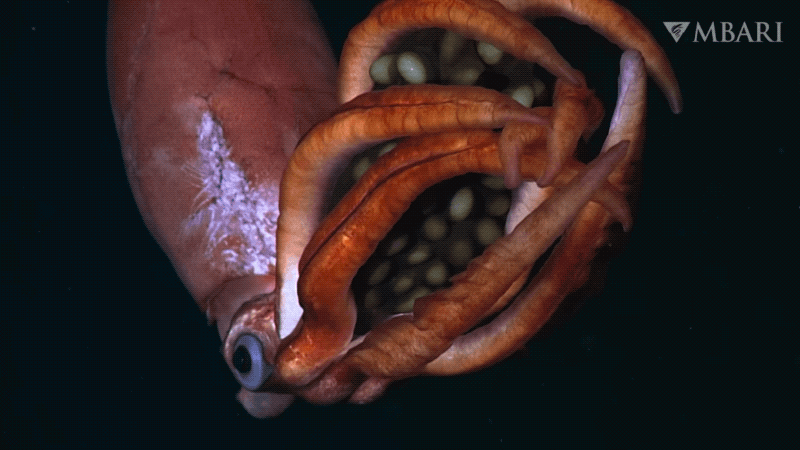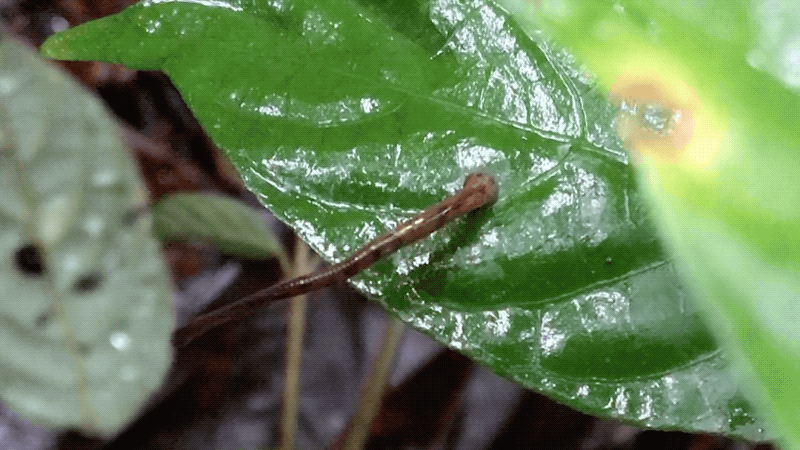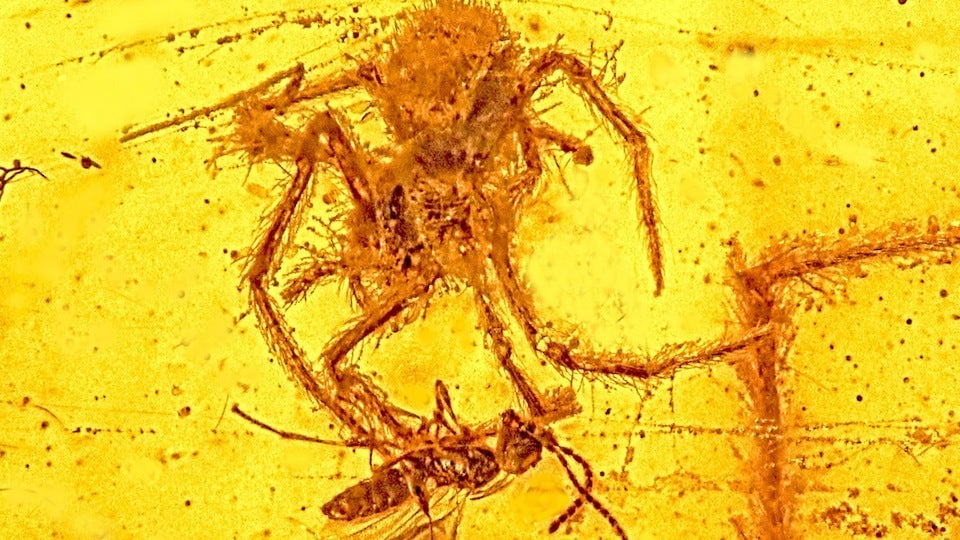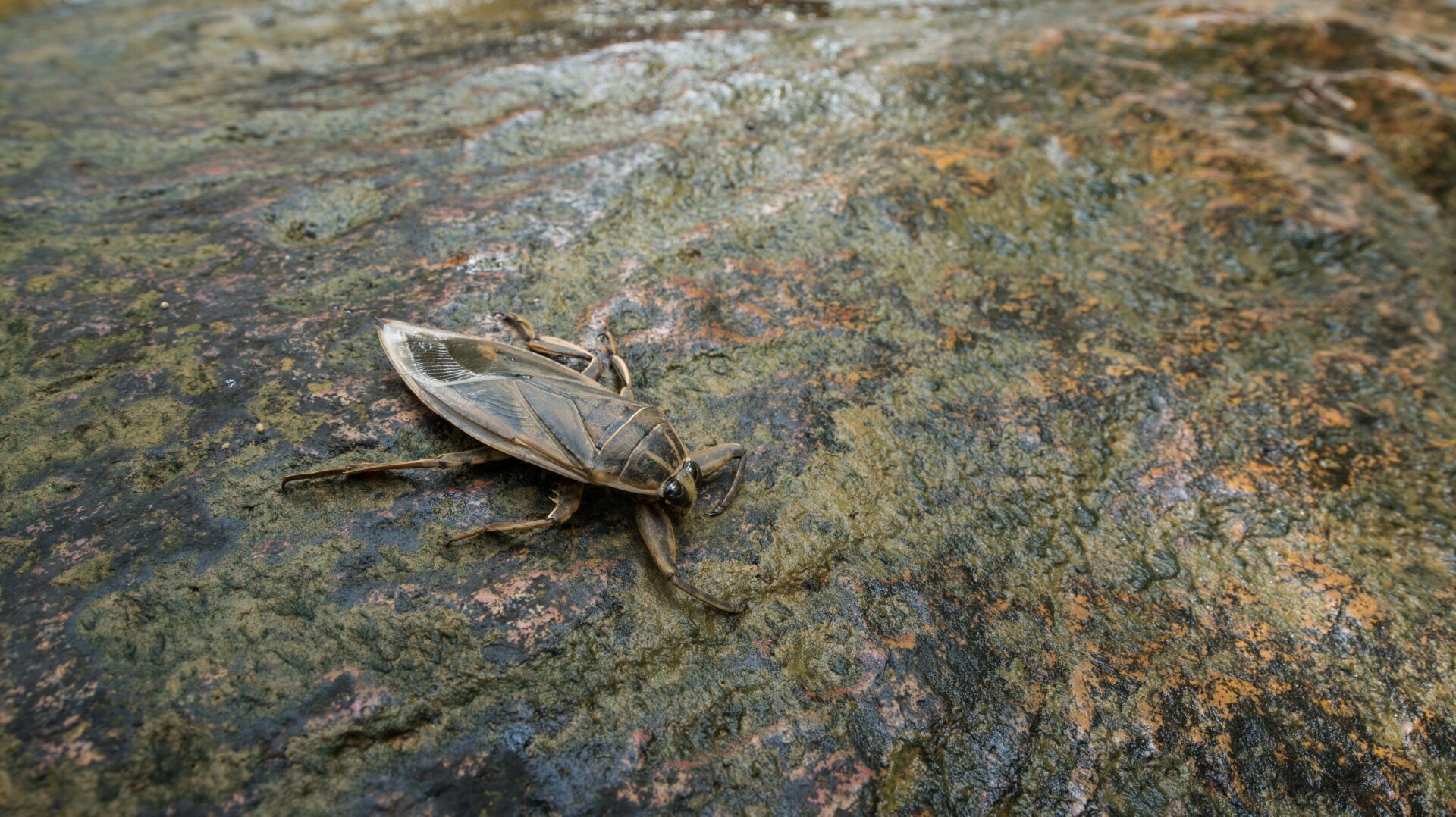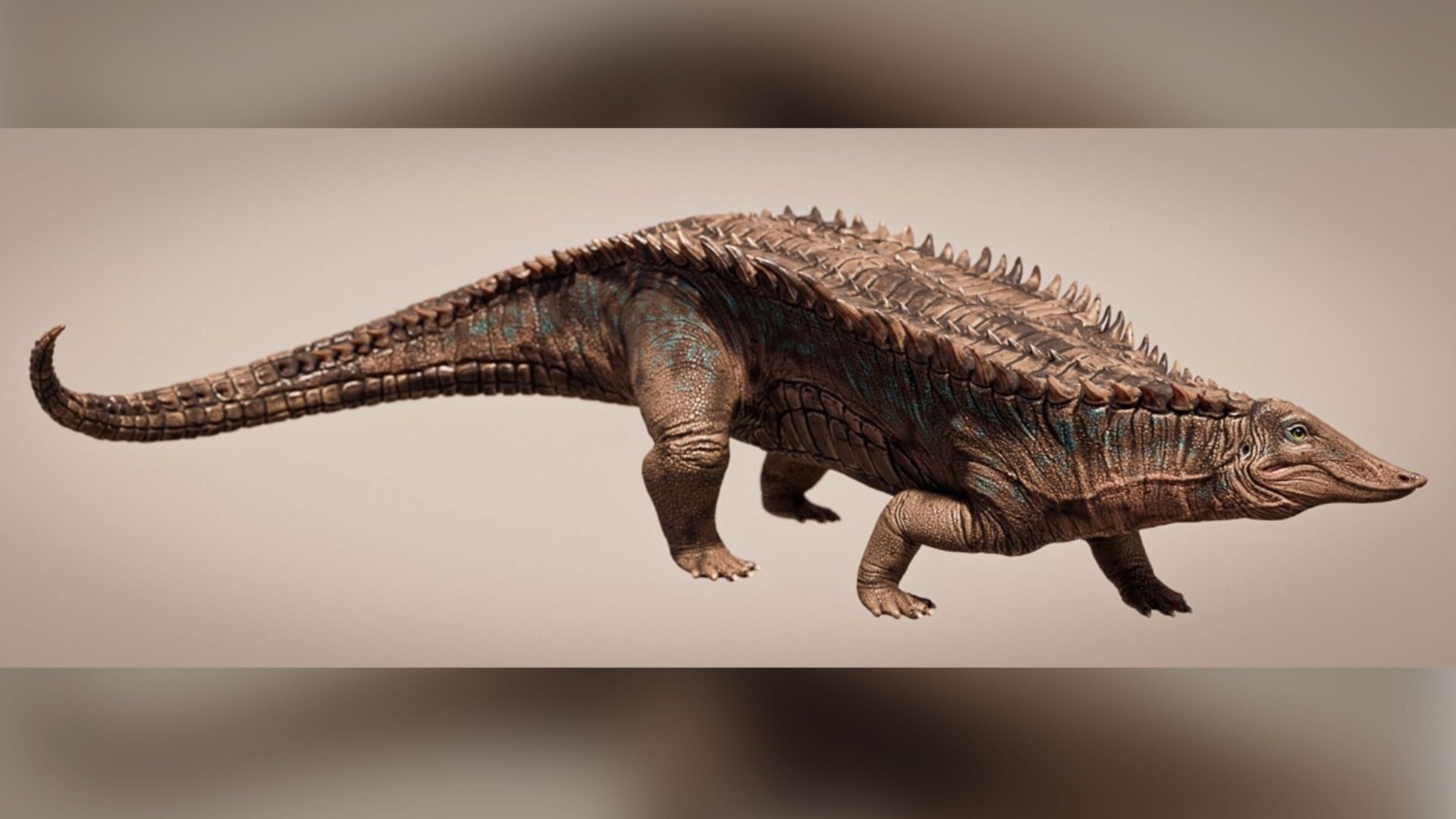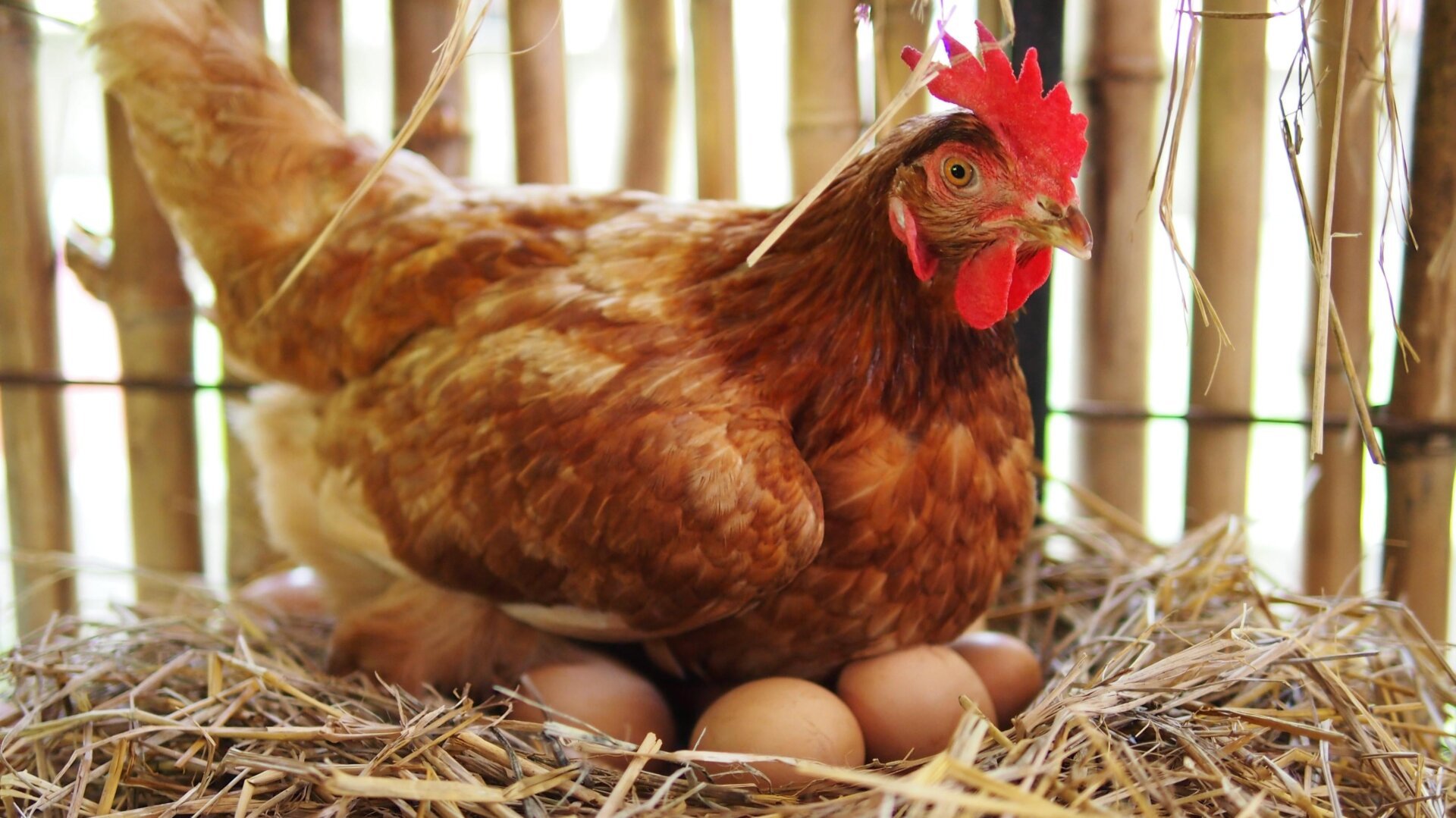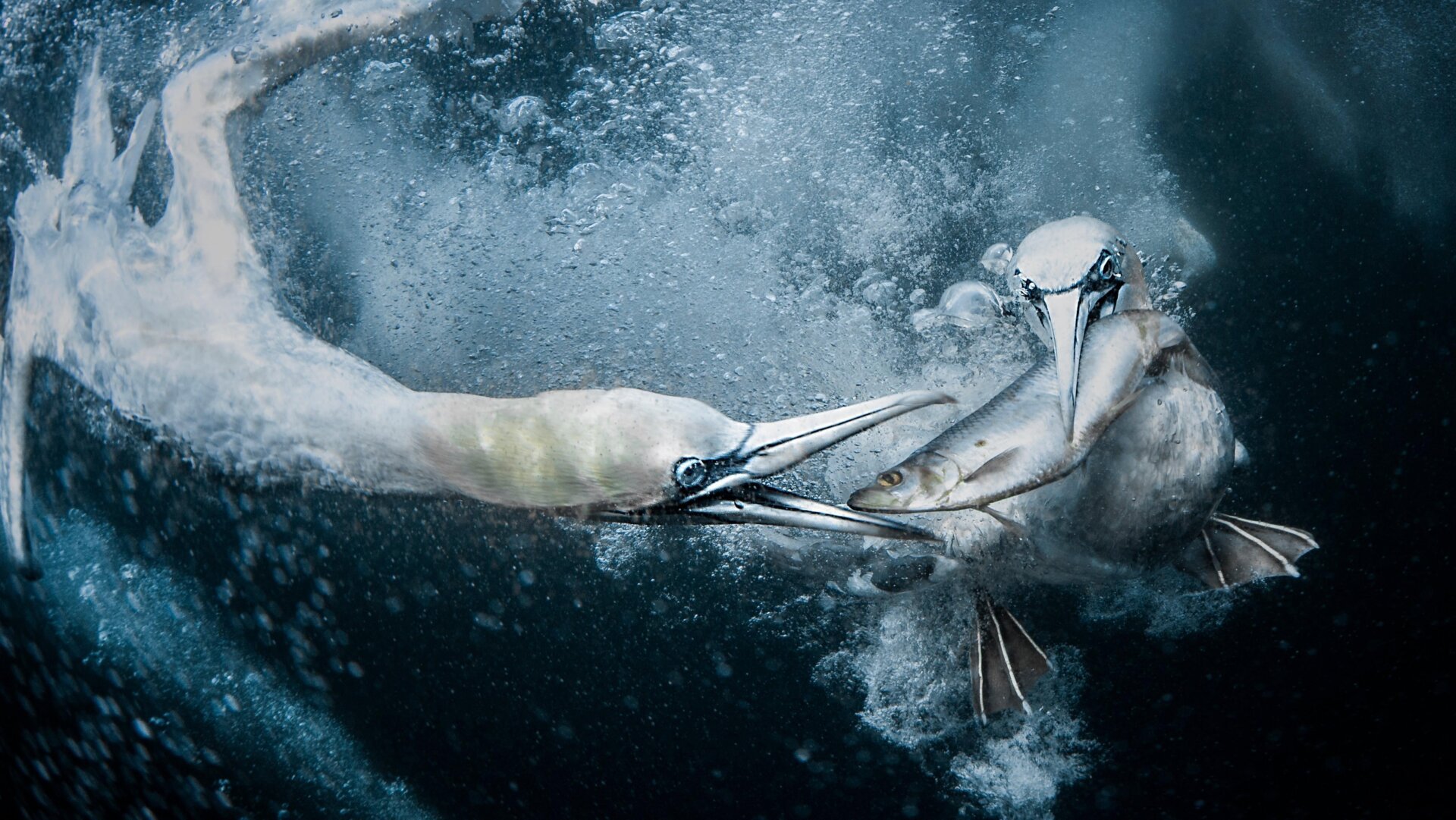Deep in the Gulf of California, marine scientists have stumbled upon a remarkable discovery: a new species of squid exhibiting a rare brooding behavior. This intriguing find offers a glimpse into the unique adaptations of creatures thriving in the deep ocean’s challenging environment.
In 2015, researchers from the Monterey Bay Aquarium Research Institute (MBARI), the GEOMAR Helmholtz Centre for Ocean Research Kiel, and the University of South Florida were exploring the oxygen-minimum zones of the Gulf of California. Using remotely operated vehicles (ROVs), the team encountered a pinkish-colored squid approximately 8,419 feet (2,566 meters) below the surface. What made this encounter extraordinary was the squid’s behavior: it was carefully cradling a clutch of unusually large eggs.
A Unique Brooding Strategy
Most squid species lay their eggs in large masses attached to the seafloor or drifting freely in the water column. However, some deep-sea squids engage in brooding, carrying and protecting their eggs until they hatch. While brooding has been observed before, this particular instance stood out. The squid’s eggs were remarkably large, measuring about half an inch in diameter, significantly larger than the eggs of other known brooding squids. Furthermore, the squid carried only 30 to 40 eggs, a stark contrast to the thousands of eggs typically observed in other brooding species.
Identifying a New Species
After meticulous analysis of the footage and comparison with existing records, the research team concluded that this squid likely represents a previously unknown species, possibly belonging to the Gonatidae family, commonly known as armhook squids. Their findings were published in the journal Ecology.
The High Cost of Parental Care
Brooding is a costly strategy for deep-sea squids. The mother forgoes feeding while protecting her eggs and typically perishes shortly after they hatch. For this new species, the brooding period could extend from one to four years due to the larger egg size, making the sacrifice even greater. The current record for brooding duration stands at 4.5 years for a deep-sea octopus species.
Evolutionary Adaptations in the Deep Sea
The researchers hypothesize that the evolution of giant egg brooding in this squid species may be an adaptation to the unique conditions of the deep sea. The stable environment and resource availability might allow these squids to invest more heavily in the survival of individual offspring, despite the reduced number of eggs.
Unraveling the Mysteries of the Deep
This discovery highlights the vast unknown biodiversity of the deep ocean and the importance of continued exploration. Advanced underwater robotics is providing invaluable insights into the lives of these elusive creatures, revealing their fascinating biology and behavior. Each new observation contributes to our understanding of the deep sea and the remarkable adaptations of its inhabitants.
Published Research
MBARI News Release
MBARI Video
Octopus Brooding Record



